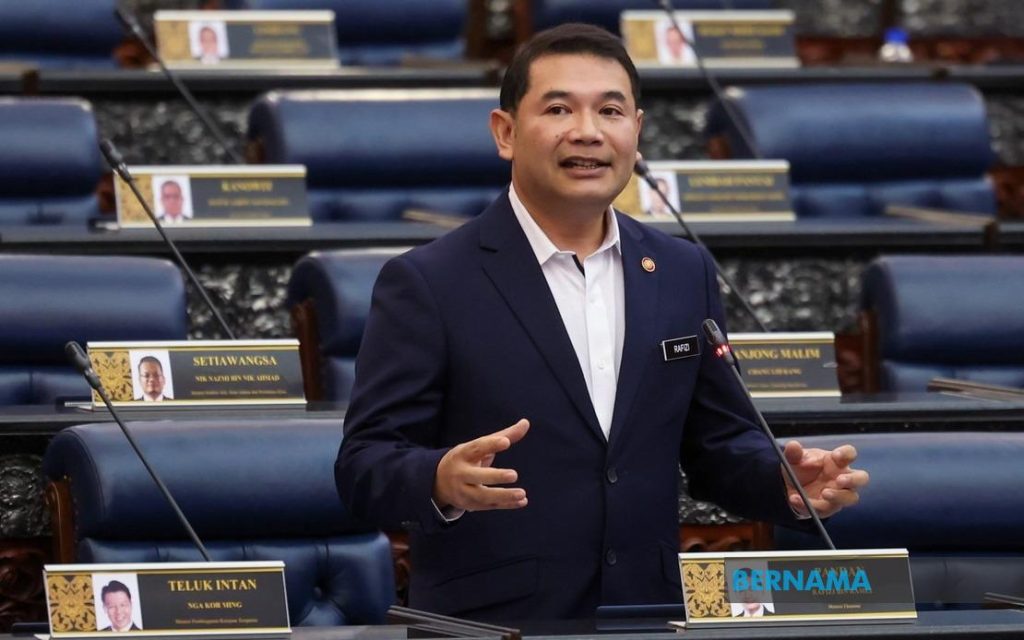
The government has allocated a sum of RM30 million in cash incentives in the wage policy pilot project, slated to begin in June next year, involving the participation of 1,000 companies, including micro, small, and medium enterprise (MSMEs).
Minister of Economy Rafizi Ramli said the cash incentives would be provided based on rates and employee groups at the entry-level and non-entry level.
“For the entry-level group, companies are eligible to receive the incentive at a fixed rate of up to RM200 per month for 12 months, if the company pays wages at the same rate or exceeding the proposed annual wage increase guideline.
“For the non-entry level group, companies are eligible to receive the incentive at a fixed rate of up to RM300 per month for 12 months if the company provides an annual wage increase based on the annual wage increase guideline,” he told a press conference at the Parliament building.
He said the payment mechanism would also be determined whether it would be done on an annual or a six-month basis.
When tabling the Progressive Wage Policy White Paper at the Dewan Rakyat earlier, Rafizi explained the issue of wages in Malaysia and that the introduction of the Progressive Wage Policy is part of the government’s efforts to address labour market structural issues through wage reform.
He said that based on the First Quarter 2023 Workers’ Wage Statistics Report (Formal Sector), 73.3% of 6.54 million formal sector workers received a monthly salary of less than RMS5,000, while nearly 56% of workers received salaries below the living wage (RM3,047 per month).
Additionally, he said 47% received salaries below the Poverty Line Income (RM2,589 per month based on the 2022 Poverty Line Income), and more than 10% of formal sector workers received salaries below the minimum wage (RM1,500 per month).
Rafizi said the Progressive Wage Policy has three key features, namely voluntary implementation, incentive-based, and productivity-related.
The implementation of the policy is voluntary without new legislation to ensure employers’ capacity and capability to adopt the progressive wage model, hence providing sufficient space for companies to be prepared and make adjustments without undue financial pressure.
“Voluntary participation will be supported by the government through cash incentive assistance to help employers fund part of the costs of participating in the Progressive Wage Policy.
“This incentive will be given to companies that meet the criteria for one-year period to allow companies to adjust their business plans,” he said, adding that the incentive provision would be reviewed annually based on the government’s fiscal position.
As for productivity-related salary increases, he said it would emphasise fairness between employers and workers through the concept of reciprocal productivity improvement and salary increases.
“This concept aims to address employers’ main concern, which is that salary increases should be in line with the improvement in workers’ skills and productivity levels,” he said.
Rafizi added that a robust and effective governance structure across ministries and agencies would be established through the setting up of several committees, namely the Cabinet Special Committee, Executive Committee, and Implementation Task Force Committee for the implementation of the Progressive Wage Policy. – Bernama
